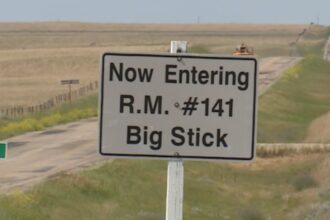The sound of chalk on blackboards is being replaced by discussions of carbon footprints and renewable energy sources in classrooms across Canada, as educators increasingly advocate for comprehensive climate change education. A growing movement of Canadian teachers is demanding provincial education ministries implement more robust climate curriculum to prepare students for an uncertain environmental future.
“We’re teaching the generation that will face the most severe consequences of climate change,” explains Sarah Richardson, a high school science teacher from Vancouver who recently helped launch a petition that has gathered over 12,000 signatures from educators nationwide. “Yet many of our provincial curricula still treat climate science as optional content rather than essential knowledge.”
The push comes amid troubling climate indicators for Canada, which is warming at twice the global average rate according to Environment and Climate Change Canada. The country has experienced increasingly severe wildfires, flooding, and coastal erosion in recent years, with economic damages from climate-related disasters exceeding $2.5 billion annually since 2020.
Currently, climate education varies dramatically across provincial boundaries. British Columbia and Quebec have integrated climate concepts across multiple subjects from early grades, while Alberta and Saskatchewan offer more limited coverage, often presenting climate science alongside opposing viewpoints that question established scientific consensus.
“There’s a dangerous inconsistency in how Canadian students learn about climate change,” notes Dr. Emma Patel, environmental education researcher at the University of Toronto. “Some graduate with sophisticated understanding of climate systems and solutions, while others receive minimal exposure to these critical concepts.”
The Canadian Teachers’ Federation recently published a position paper calling for standardized climate education benchmarks nationwide. Their proposal includes age-appropriate climate content beginning in elementary school, interdisciplinary approaches connecting climate to social studies and economics, and practical sustainability projects that empower students to take meaningful action.
Industry partners are also joining the initiative. “Clean energy companies are desperate for workers who understand climate challenges,” says Michael Chen, director of workforce development at RenewCanada, a renewable energy consortium. “Schools that build this knowledge base are preparing students for the fastest-growing sector of our economy.”
Not everyone supports the movement. Some parent groups and conservative think tanks have expressed concerns about potential political bias in climate education. “We support teaching environmental stewardship, but worry about alarmism replacing balanced scientific inquiry,” states Catherine Wells of Parents for Educational Choice.
Nevertheless, recent polling suggests 72% of Canadian parents believe climate change should be a mandatory component of public education. Many school boards aren’t waiting for provincial mandates, instead developing their own climate literacy frameworks and teacher training programs.
The movement has gained particular momentum in Ontario, where a coalition of teachers unions and environmental organizations recently secured a commitment from the Ministry of Education to review climate content across the K-12 curriculum.
“This isn’t about indoctrination—it’s about preparation,” emphasizes Richardson. “Whether they become engineers, farmers, healthcare workers or business leaders, today’s students will need to understand climate systems to succeed in their careers and communities.”
As autumn approaches and another school year begins, the question remains: will Canada’s education systems adapt quickly enough to prepare young people for the climate challenges they’ll inevitably face? The answer may determine not just academic outcomes, but our collective capacity to navigate an increasingly unstable climate future.









